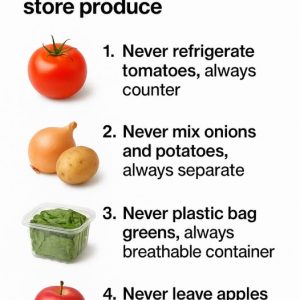Thousands of people were questioned about their dietary habits in a US study.
Eating too much ultra-processed food such as crisps, burgers and ice cream may boost risk of memory problems and stroke, a study suggests.
More than 30,000 people over the age of 45 were questioned about their food and drink habits.

Their health records were then followed for an average of 11 years.
The findings suggested that for every 10 percent greater intake of ultra-processed foods, people experienced a 16 percent higher risk of developing cognitive impairment.
Risk of stroke was also eight percent higher among people who ate more ultra-processed foods. The increased risk of stroke was even greater among Black participants, at 15 percent higher.

Meanwhile, people who ate more unprocessed or minimally processed foods – such as simple cuts of beef, pork and chicken, vegetables and fruits – had a 12 percent lower risk of memory and thinking problems and nine percent lower risk of stroke.
The analysis used data from more than 14,000 participants to assess the impact of food choices on cognitive decline, and more than 20,000 for stroke.
By the end of the study, 768 people were diagnosed with cognitive impairment and 1,108 people had a stroke.
Ultra-processed foods are typically high in added sugar, fat and salt, and lack protein and fibre.

Other examples include some packaged salty and sugary snacks, canned baked beans, packaged bread and flavoured cereals.
The researchers stressed that their study, carried out in the US, could not prove that ultra-processed foods caused the health problems, but it showed an association.
Study leader Dr William Taylor Kimberly, of Massachusetts General Hospital in Boston, said: “While a healthy diet is important in maintaining brain health among older adults, the most important dietary choices for your brain remain unclear.

“We found that increased consumption of ultra-processed foods was associated with a higher risk of both stroke and cognitive impairment, and the association between ultra-processed foods and stroke was greater among Black participants.”
Ultra-processed foods have previously been linked to greater risk of heart problems including high blood pressure, cardiovascular disease, and heart attacks.
Dr Kimberley added: “Our findings show that the degree of food processing plays an important role in overall brain health.
“More research is needed to confirm these results and to better understand which food or processing components contribute most to these effects.”
The findings were published online in Neurology, the medical journal of the American Academy of Neurology.




